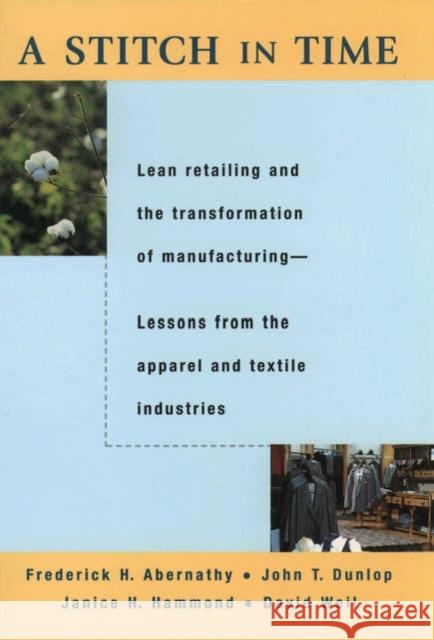A Stitch in Time: Lean Retailing and the Transformation of Manufacturing » książka
A Stitch in Time: Lean Retailing and the Transformation of Manufacturing
ISBN-13: 9780195126150 / Angielski / Twarda / 1999 / 384 str.
The apparel and textile industries have always been at the mercy of rapidly changing styles and fickle customers who want the latest designs while they are still in fashion. The result for these businesses, often forced to forecast sales and order from suppliers with scant information about volatile demand, is a history of stock shortages, high inventories, and costly markdowns. But, as the authors explain in A Stitch in Time, technological advances in the 1980s paved the way for a new concept in retailing--lean retailing.
Pioneered by companies like WAL-MART, lean retailing has reshaped the way that products are ordered, virtually eliminating delays from distribution center to sales rack by drawing on sales data captured electronically at the checkout counter. Armed with up-to-the-minute data about colors, sizes, styles, and geographic sales, apparel and textile companies now must be able to respond rapidly to real-time orders efficiently based on new approaches to distributing merchandise, forecasting, planning, organizing production, and managing supplier relations. A Stitch in Time shows that even in the face of burgeoning product proliferation, companies that successfully adapt to the world of lean retailing can reduce inventory risk, reduce costs, and increase profitability while improving their responsiveness to the ever-changing tastes of customers. Based on the success of these practices in the apparel industry, lean retailing practices are propagating through a growing number of consumer product industries.
A richly detailed and resonant account, A Stitch in Time brilliantly captures both the history and future of the retail-apparel-textile channel and offers bold insights on the changes and challenges facing retailers and manufacturers in all segments of our rapidly changing economy.











